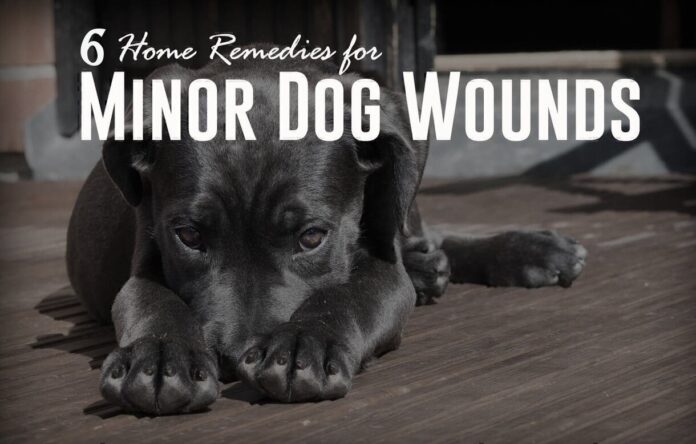Hey there, fellow pet parents! Today, I’m gonna share some super helpful tips about treating your furry friend’s wounds at home But remember, while these remedies are great for minor injuries, serious wounds need a vet’s attention ASAP!
Understanding Dog Wounds: The Basics First!
Before we dive into the remedies, let’s get real – not all wounds are created equal. Some boo-boos you can handle at home, while others need professional help. Here’s when you should rush to the vet:
- Deep cuts longer than 1/2 inch
- Heavy bleeding that won’t stop
- Puncture wounds (especially from other animals)
- Signs of infection like pus or bad smell
- Wounds near eyes or joints
Safe and Effective Home Remedies for Dog Wounds
1. Clean Water: Your Best First Line of Defense
Nothing beats good ol’ clean water! Here’s whatcha need to do – Use lukewarm water to gently flush the wound- Remove dirt and debris carefully- Pat dry with clean towels- Repeat 2-3 times daily
2. Natural Antiseptic Solutions
Saline Solution
- Mix 1 teaspoon salt with 2 cups warm water
- Use for gentle cleaning
- Perfect for minor scrapes
Hydrogen Peroxide (Use with Caution!)
- Only use 3% solution
- Dilute 1:1 with water
- Use only for first cleaning
- Don’t use repeatedly (can damage healthy tissue)
3. Herbal Heroes for Healing
Calendula
- Amazing for wound healing
- Use as wash or spray
- Has natural antimicrobial properties
Aloe Vera
- Natural healing properties
- Soothes irritated skin
- Apply pure gel directly
4. Kitchen Cabinet Remedies
Honey (The Sweet Healer)
- Use raw, unpasteurized honey
- Apply thin layer directly
- Natural antibacterial properties
- Creates protective barrier
Coconut Oil
- Natural antimicrobial
- Promotes healing
- Helps prevent scarring
- Apply thin layer 2-3 times daily
Step-by-Step Wound Treatment Guide
-
Clean Your Hands
- Wash thoroughly
- Use gloves if available
-
Secure Your Pet
- Keep them calm
- Get help if needed
- Use muzzle if necessary
-
Clean the Wound
- Flush with clean water
- Remove visible debris
- Pat dry gently
-
Apply Your Chosen Remedy
- Use clean applicator
- Be gentle
- Don’t let them lick!
-
Monitor Healing
- Check twice daily
- Watch for infection signs
- Keep area clean
Prevention Tips to Avoid Future Wounds
-
Regular Yard Checks
- Remove sharp objects
- Fix broken fences
- Clear hazardous plants
-
Proper Training
- Teach basic commands
- Avoid aggressive dogs
- Use leash when needed
-
Regular Grooming
- Check for cuts/scrapes
- Keep nails trimmed
- Maintain clean coat
When to Skip Home Remedies
Sometimes, what home remedy is good for dog wounds isn’t the right question – you need professional help if:
- Wound is deep or large
- Heavy bleeding continues
- Signs of infection appear
- Pet seems lethargic/unwell
- Wound is near sensitive areas
Creating a Pet First Aid Kit
Keep these items handy:- Clean gauze- Non-stick bandages- Medical tape- Saline solution- Clean towels- Antimicrobial ointment- Scissors- Tweezers
Tips for Success
-
Stay Calm
- Your pet senses your energy
- Work quickly but carefully
- Get help if needed
-
Be Prepared
- Keep first aid kit ready
- Know your vet’s number
- Have backup plan
-
Monitor Progress
- Take photos daily
- Track healing time
- Note any changes
Final Thoughts
Knowing what home remedy is good for dog wounds can save you panic and vet visits for minor injuries. But remember, when in doubt, always consult your vet! These remedies work great for small wounds, but serious injuries need professional care.
Keep your furry friend safe, and don’t forget to stock up on these natural remedies. After all, our four-legged family members deserve the best care possible! Stay pawsome, and catch ya in the next post!
Disclaimer: This article is for informational purposes only. Always consult your veterinarian for serious injuries or if you’re unsure about treatment.












